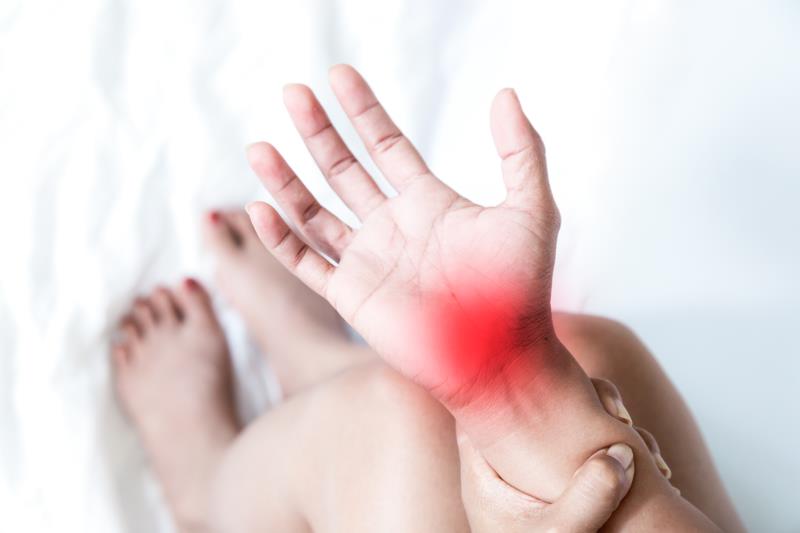
The oral Janus kinase inhibitor tofacitinib appears to have no benefit for the extraintestinal manifestations* (EIMs) of moderate-to-severe ulcerative colitis (UC), according to data from the OCTAVE** clinical programme presented at AIBD 2019.
Treatment of EIMs – which occur in approximately a third of patients with inflammatory bowel diseases such as UC – is essential to improve the quality of life of patients with UC. [Inflamm Bowel Dis 2015;21:1982-1992; Lancet 2017;389:1756-1770] As such, the researchers sought to evaluate the impact of tofacitinib on EIMs, as this currently remains unknown. However, they found that the majority of tofacitinib recipients across the OCTAVE studies included in the analysis had no change in symptoms from baseline.
Researchers gathered data from three double-blind, randomized, phase III studies evaluating twice-daily tofacitinib 5 or 10 mg in patients with moderate-to-severe UC: OCTAVE Induction 1 and 2 (tofacitinib 10 mg vs placebo [n=1,139]) and the maintenance study OCTAVE Sustain (tofacitinib 5 or 10 mg vs placebo [n=592]). Changes*** in EIMs from baseline to end of treatment period (week 8 [OCTAVE 1/2] or week 52 [OCTAVE Sustain]) or at early termination were assessed. [AIBD 2019, abstract P080]
The rates of participants with a history of quiescent prior or active EIMs in OCTAVE Induction 1/2 and Sustain were 27 percent and 9 percent, respectively. Of these, only a fraction of tofacitinib recipients experienced a change in EIMs from baseline to week 8 (4.6 percent) and week 52 (4.6 percent and 3.1 percent of participants in the respective tofacitinib 5 and 10 mg arms).
Peripheral arthritis: Most frequent EIM
In OCTAVE Induction 1/2, the most frequent active EIM at baseline was peripheral arthritis (11 percent). At week 8, a greater fraction of tofacitinib recipients with active baseline peripheral arthritis reported no change in symptoms (81 percent), while 16 percent and 3 percent reported improvement and worsening of symptoms, respectively.
In OCTAVE Sustain, 20 patients had active baseline peripheral arthritis (n=9 receiving tofacitinib). Although none of the tofacitinib recipients reported worsening at week 52, the majority reported no change in peripheral arthritis (83 percent and 67 percent for tofacitinib 5 and 10 mg, respectively), while two patients reported improvement.
Given the small patient population with EIMs and the method of data collection used (ie, predefined EIM list which did not include a specific arthralgia category), these post hoc data should be interpreted with caution, noted the researchers, citing the need for additional investigation.